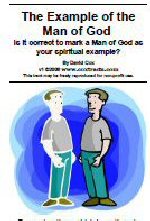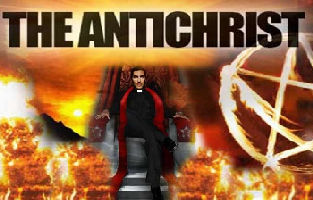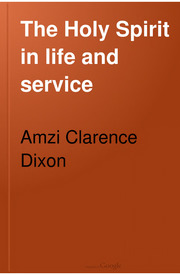Definitions of Doctrine by C. D. Cole
Cole Definitions of Doctrine 1 The Nature of God or God’s Mode of Being or God’s Mode of Being. God is a Personal Being and a Spirit Being.
Chapter 2
The Nature of God or God’s Mode of Being
What is God? What constitutes the Divine nature? What is God’s mode of being? These questions bring us to the burning bush and upon holy ground. We must tread softly, walk humbly, and avoid speculation. But we can go as far as Divine revelation goes.

Buy me a Cup of Coffee! To make an old Christian work into a PDF, a module for theWord, MySword, or eSword takes time. These works are scans from old books, and as such, I have to go through the text some dozen times looking for places where the OCR is incorrect, blurred, or just skipped something.
Text Editing.Then there are the old Bible references like John iii. 16. Many young Christians and even preachers do not know the Latin system for books of the Bible. I convert Roman numerals in these books to Arabic (iii. to 3).
I have had to invest days and days in writing macros to read a long text, and make substitutions (for the above, search for "iii" and replace with "3:"). Unfortunately, with Psalms you have to start with 150 in Roman numerals (CL) and work your way backwards. But using macros, it is almost instantaneous the next time I need this. Work smarter, not harder. All this takes time and patience, (and being smart enough to do it in a macro language) (as well as a lot of coffee) and then making the text into theWord or eSword, mySword or a PDF.
Please donate something to me once every 6 months or even once a year, even if it is only $5, so that I can pay my bills for hosting, and also keep things moving along. It costs me about $10 per month to keep a website on the Internet. My websites also contains ads which have links to my sermons, tracts, books, that I have written. These keep my works before visitors, even if they are not visiting the specific website where I have them stored. It is my own "web" internally of my own sites with links to good Christian literature. May God bless for your prayers and donations.
Take a look at a few of our tracts:
salv76 suffering should seek his Savior - explains how we should react to problems and sufferings, we should seek the Savior.
pc15 How to fight against depression - we treat the problem of depression. Depression is not a physical disease, it is an emotional and spiritual disease that "bleeds over" and causes aggravation and physical consequences if not attended to at the spiritual-social-emotional level.
ch15 Congregating because we Love - a tract about why we attend church. Our relationship with our brethren in Christ is highly integrated with our salvation and our sanctification.
SSTeen1-01 Existence of God - Does God really exist? This is not a tract but a teen Sunday School Class that I wrote answering this important question.
fam48 Men are God's Agents - Men are God’s Agents to accomplish His Will, looks at man as God wants him to be. Manhood and the husband-wife relationship.
Donations: paypal.me/davidcoxmex/
There is a Divine nature. By nature we mean that particular character of being which makes one kind of being differ from another kind of being. Thus we speak of angelic nature, of human nature, and of brute nature. That nature may be predicated of God is suggested by Paul who says that the Galatians, before their conversion, served those which by nature were no gods. “Howbeit then, when ye knew not God, ye did service unto them which by nature are no gods,” (Gal. 4:8). This clearly implies that one does exist who by nature is God.
I. God is a Personal Being.
As a person God is distinguished from pantheism, the belief that all things in the aggregate are God, God is everything and everything is God. As a personal Being God is both immanent and transcendent, that is, He is both in and above His creation. He is a person in His creation, but separate and distinct from it. He is also above His creation, that is, He is bigger than creation, distinct from it and not a part of it. In his prayer dedicating the temple, Solomon paid tribute to the transcendent greatness of God in these words: “But will God indeed dwell on the earth? behold, the heaven and heaven of heavens cannot contain thee; how much less this house that I have builded?” (1 Kings 8:27).
There are three marks of personality: self consciousness, self determination, and moral consciousness, and all these qualities belong to God.
II. God is a Spirit Being.
God is exclusively Spirit: “God is a Spirit: and they that worship him must worship him in spirit and in truth,” (John 4:24). The reader must grasp this truth firmly, or he will have trouble in understanding the trinity of persons in the Godhead. As a Spirit God can neither be divided nor compounded. As a Spirit He is invisible and intangible. “No man hath seen God at anytime, the only begotten Son, which is in the bosom of the Father, he hath declared him,” (John 1:18).
Argument:
1. He is creator of spirits, and since a spirit being is the highest order of being, He must have the nature that belongs to that order.
2. The scriptures ascribe spirituality to God. “God is a Spirit: and they that worship him must worship him in spirit and in truth,” (John 4:24). “Furthermore we have had fathers of our flesh which corrected us, and we gave them reverence: shall we not much rather be in subjection unto the Father of spirits, and live?” (Heb. 12:9).
3. His spirituality may be argued from His immensity and eternity. He is infinite as to space and time. Matter is limited as to space and time, but God is both omnipresent and eternal.
4. His spirituality may be argued from his independency and immutability. That which is material can be divided, added to, or diminished. Matter is subject to change, but God is the unchangeable one. “For I am the LORD, I change not; therefore ye sons of Jacob are not consumed,” (Mal 3:6).
5. His spirituality may also be argued from His absolute perfections. A material body imposes limitations, and is not consistent with absolute perfection. We use the word perfection in a wider sense than sinlessness. The Savior, in his human body, had his limitations although He was sinless. He was not everywhere at the same time. He was not immune to hunger and thirst, weariness and pain.
Objection:
Many passages of scripture ascribe bodily parts to God. They speak of His eyes, face, hands, feet, arms, etc. In reply it may be said that the language is figurative, and is used in an accommodation to human understanding. Such language is called anthropomorphism, the ascription of human characteristics to things not human.
III. God is a Triune Being.
There is one Divine essence of being subsisting in three persons: Father, Son, and Holy Spirit. God is a triunity, three in one. In the early part of the fourth century when Arianism threatened to prevail, a young theologian named Athanasius formulated the statement that was incorporated in the Nicene Creed. He said, “We worship one God in trinity and trinity in unity, neither confounding the persons nor dividing the substance.” This is a remarkable statement, profound in its clarity and simplicity. The Arian notion made the Father the Supreme God and the Son only Divine in a subordinate sense. The Son was like but not of the same substance with the Father, according to Arius.
The Sabellian notion is that God is one person, manifesting Himself sometimes as Father, sometimes as Son, and sometimes as Holy Spirit. But this would make Him cease to exist as Father when manifested as Son.
If God were a physical being as a trinity, He would be in three parts, and if these parts were persons, each person would be only a part of God. But as a Spirit He is three persons, but only one substance, and each person is all of God. Of the Son we read: “For in him dwelleth all the fulness of the Godhead bodily,” (Col. 2:9). And again He is called: “Who is the image of the invisible God, the firstborn of every creature,” (Col. 1:15).
God is not three persons in the same sense that Father, mother, and daughter are three persons in one family. It could not be said of any one of three persons in a human family that he is all of the family.
God has three modes of Being, three centers of personal consciousness. He is one essentially, but three persons relatively. And in these relations He exists as Father, Son, and Holy Spirit. Dr. Strong puts it like this: In the matter of source, origin, and authority, He is the Father. In the matter of expression, medium, and revelation, He is the Son. In the matter of apprehension, accomplishment, and realization, He is the Spirit. Dr. Strong also sums up the characteristic differences between the work of the Son and the work of the Spirit in four statements, as follows:
1. All outgoing seems to be the work of Christ; all return to God the work of the Spirit.
2. Christ is the organ of external revelation; the Holy Spirit is the organ of internal revelation.
3. Christ is our advocate in heaven; the Holy Spirit is our advocate in the soul.
4. In the work of Christ we are passive; in the work of the Holy Spirit we are made active.
The Triunity a Revealed Doctrine
Just as man without the Bible has never discovered the one true God, without the Bible he has never discovered a trinity of persons in the Godhead. The triunity is indiscoverable by human reason, neither is there any rational proof of it.
It is said that on one occasion Daniel Webster and a friend listened to a sermon upon the Trinity. As they walked home from church the friend said: “Mr. Webster, is not that doctrine a mathematical impossibility?” Said Mr. Webster: “According to the mathematics of earth it seems to be; but I’m not acquainted with the mathematics of heaven.”
The Bible gives us heavenly mathematics, and to it we should go in proof of the Triunity of God.
1. We have triunity in the plural names of God. The first name of God we meet with in the Bible is plural: “In the beginning God (Elohim, plural) created (singular) the heaven and the earth,” (Gen. 1:1). The plural noun with the singular verb shows trinity acting in unity. Charles Smith says the Bible begins with a forgery; that this first verse should read: “In the beginning the gods.” Not so; the singular verb shows there was one Being acting, while the plural noun reveals three persons in one Divine essence. The plural for God occurs far more often than does the singular.
2. We have triunity in the plural expressions used by God when speaking of Himself. “And God said, Let us make man in our image, after our likeness: and let them have dominion over the fish of the sea, and over the fowl of the air, and over the cattle, and over all the earth, and over every creeping thing that creepeth upon the earth,” (Gen. 1:26); “Go to, let us go down, and there confound their language, that they may not understand one another’s speech,” (Gen. 11:7), etc.
3. A trinity of Divine persons was manifested at the baptism of Jesus. There was the incarnate Son being baptized; the Father was manifested by audible voice; and the Spirit appeared in the form of a dove. “And Jesus, when he was baptized, went up straightway out of the water: and, lo, the heavens were opened unto him, and he saw the Spirit of God descending like a dove, and lighting upon him: And lo a voice from heaven, saying, This is my beloved Son, in whom I am well pleased,” (Matt. 3:16,17).
4. We have triunity in the baptismal formula: “Go ye therefore, and teach all nations, baptizing them in the name of the Father, and of the Son, and of the Holy Ghost:” (Matt. 28:19). It does not say, “baptizing them in the names (plural) of the Father, and of the Son, and of the Holy Ghost.” Nor does it give us the equivalent of the plural by saying, “In the name of the Father, and in the name of the Son, and in the name of the Holy Ghost.” Nor, on the other hand, does it say, “In the name of the Father, Son, and Holy Ghost, as if the Father, Son, and Holy Ghost might be taken as merely three designations of one person. Here is the reading: “Baptizing them in the name of the Father, and of the Son, and of the Holy Ghost.”
The Triunity Reflected in Creation
While there is nothing in creation to explain or account for the triunity of God, the triunity does explain creation. This is a tri-universe, a three-in-one creation. One of the truly great books of our day is that book by Nathan R. Wood entitled “The Secret of the Universe.” In this remarkable book the author shows that the universe is what it is because it was created by the triune God. He first shows that the physical or outer universe is a triunity. The basic things are space, matter, time; three modes of existence and, like God, each is all of the whole. And each of these basic things is a triunity. Space has three dimensions: length, breadth, and height. Each is the whole of space and yet there are three distinct dimensions. Matter is composed of three things: energy, motion, phenomena; three modes of existence; distinct and yet one, and each is all of the whole. And as a time universe there is absolute threeness: past, present, future; distinct and yet each is the whole. All of time is or has been future, the future includes it all. All of time is or has been or will be present. And all of time is or will be past.
The author then takes the soul or what he calls the inner universe, and shows that the soul of man is a triunity, that is, three modes of existence. He calls them nature, person, personality; distinct and yet each is the whole of the soul, absolute threeness and absolute oneness. And here the author shows how man as a soul reflects the triune God in a way that the physical creation does not. He makes God the key that unlocks the riddle of the universe. He says in a sort of summary: “The structure of the universe, the nature of space, of matter, of time, of human life, attest the Trinity. They reflect the Trinity. They demand the Trinity. The Trinity explains them.”
The author knocks the Einstein theory of relativity with the argument for the fourth dimension into the proverbial cocked hat. The difference between Einstein and Wood is the difference between the atheistic and the Christian approach to the secret of the universe.
PB Ministries Home


 Anthology on the Antichrist
Anthology on the Antichrist
